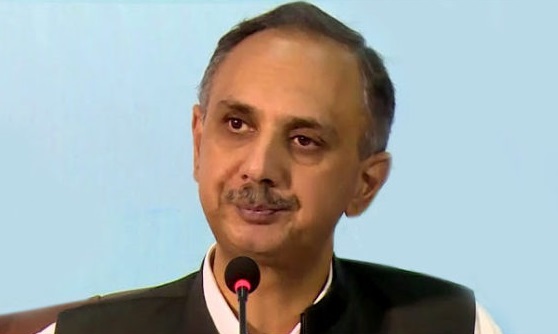ISLAMABAD: Ambassadors to Azerbaijan and Nepal to Pakistan on Thursday called on Federal Minister for Economic Affairs, Omar Ayub Khan, to discuss bilateral economic cooperation.
According to details, Ambassador of the Republic of Azerbaijan to Pakistan, Ali Alizada, and Ambassador of the Federal Democratic Republic of Nepal to Pakistan, Tapas Adhikari, called on the federal minister separately and congratulated him on the assumption of the new portfolio of the Ministry of Economic Affairs.
Alizada emphasised to enhance business to business contacts between the both countries to boost trade and investment opportunities. He highlighted that Pakistani exporters can benefit from exports of goods, especially textile and rice to Azerbaijani market.
He also showed interest in exporting oil products to Pakistan on a deferred payment basis and construction of an LNG terminal.
Omar Ayub Khan highlighted that both the countries have huge potential in the areas of trade, investment and tourism. He expressed that Pakistan has vast opportunities for investment in petrochemical industries, light engineering, agriculture and food processing.
Both sides also highlighted the importance of Central Asia Regional Economic Cooperation (CAREC) and agreed to further enhance the mutual cooperation on a bilateral basis as well as the CAREC platform which will ultimately benefit the entire region to unleash their economic potential.
On the other hand, Tapas Adhikari, discussed issues of mutual interest and Covid-19 situation in the region.
The federal minister assured the ambassador of all possible support to Nepalese people in this difficult time and also emphasised on further strengthening bilateral economic relations and enhancing trade and investment opportunities between the two countries.




